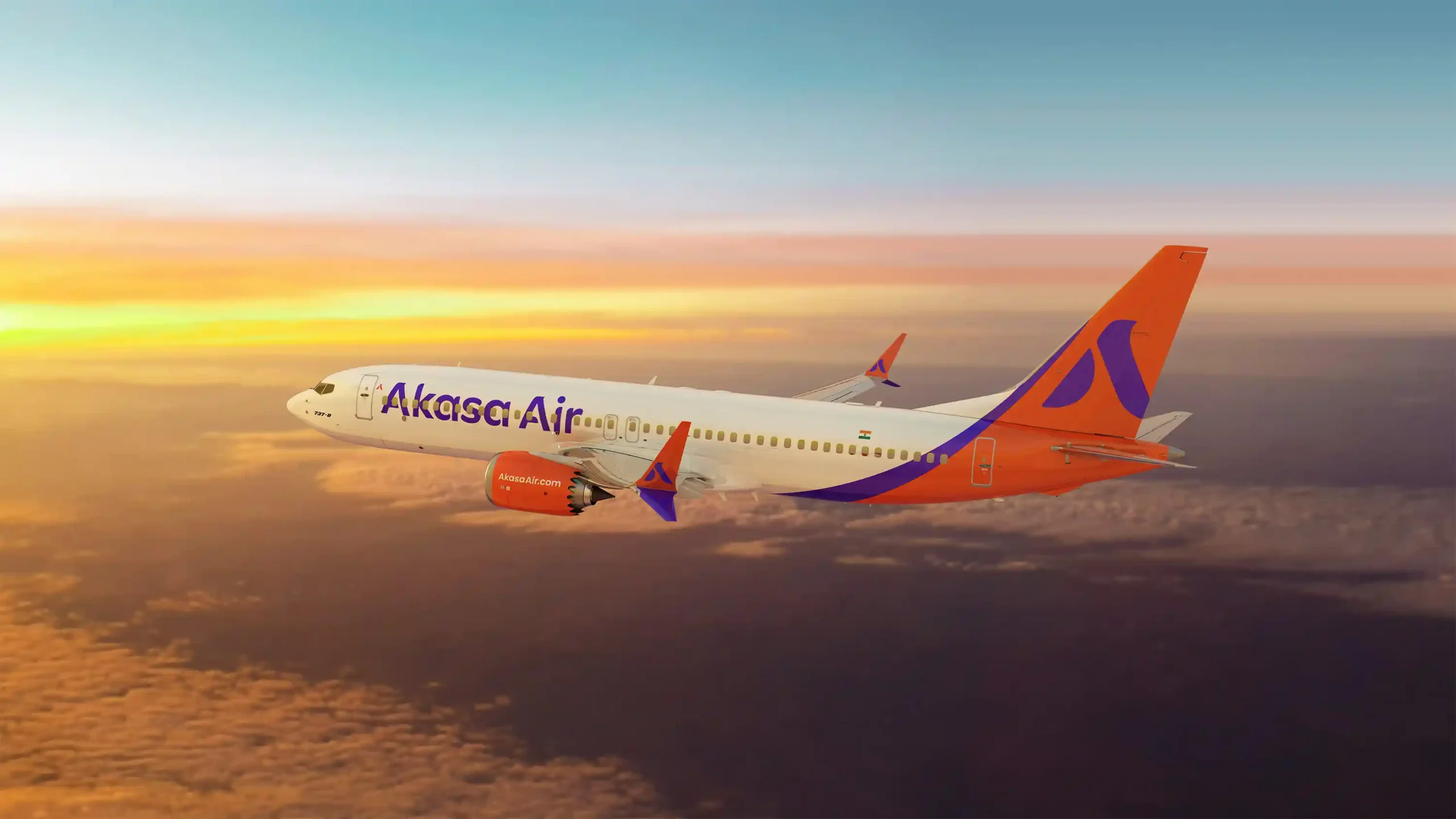Akasa Air to Conduct Safety Risk Assessment on 14 Boeing 737 Planes Following DGCA Directive

Akasa Air will soon undertake a safety risk assessment for 14 of its 25 aircraft, following a directive from the Directorate General of Civil Aviation (DGCA) issued earlier this week, sources have revealed. Air India Express, another key player in the Indian aviation market, will conduct similar assessments on five of its 88 planes.
On Monday, the DGCA instructed Indian airlines to assess safety risks associated with Boeing 737 aircraft equipped with the Collins Aerospace rudder control system. Additionally, these specific B737 aircraft have been temporarily restricted from using CAT III B systems at Indian airports. The CAT III B system, designed for precision landings in low-visibility conditions, allows aircraft to land safely even in dense fog. As a result of this restriction, if the DGCA order remains in place throughout winter, the affected B737 planes will be unable to land in foggy conditions at Indian airports.
However, a spokesperson from Akasa Air reassured the public that their flight operations would remain unaffected by the order. “We have reviewed the DGCA and Boeing’s recommendations. The issue identified does not interfere with our operations, and there will be no disruptions to our flight schedule,” they confirmed. All 25 of Akasa’s planes are B737 models. The spokesperson further emphasized Akasa Air’s commitment to safety, stating, “Safety is our top priority, and we are dedicated to meeting the highest global safety standards. We appreciate the DGCA’s vigilance and will comply with all necessary measures to ensure safety.”
Meanwhile, Air India Express, which operates a mixed fleet of B737 and Airbus A320 aircraft, confirmed that only five planes in its fleet are impacted by the advisory. “We have begun the process of compliance with the regulatory requirements,” said an Air India Express spokesperson.
SpiceJet, another Indian airline operating Boeing 737 NG models, clarified that none of its aircraft were affected by the DGCA’s directive.
The DGCA’s move follows urgent safety recommendations issued by the National Transportation Safety Board (NTSB) on September 26. The NTSB raised concerns over the rudder control system on certain Boeing 737 models, following an incident earlier this year where the rudder pedals on a United Airlines Boeing 737-8 MAX became stuck during landing. This event led to an investigation into possible assembly issues, which revealed that moisture could potentially enter and freeze, leading to operational challenges.






